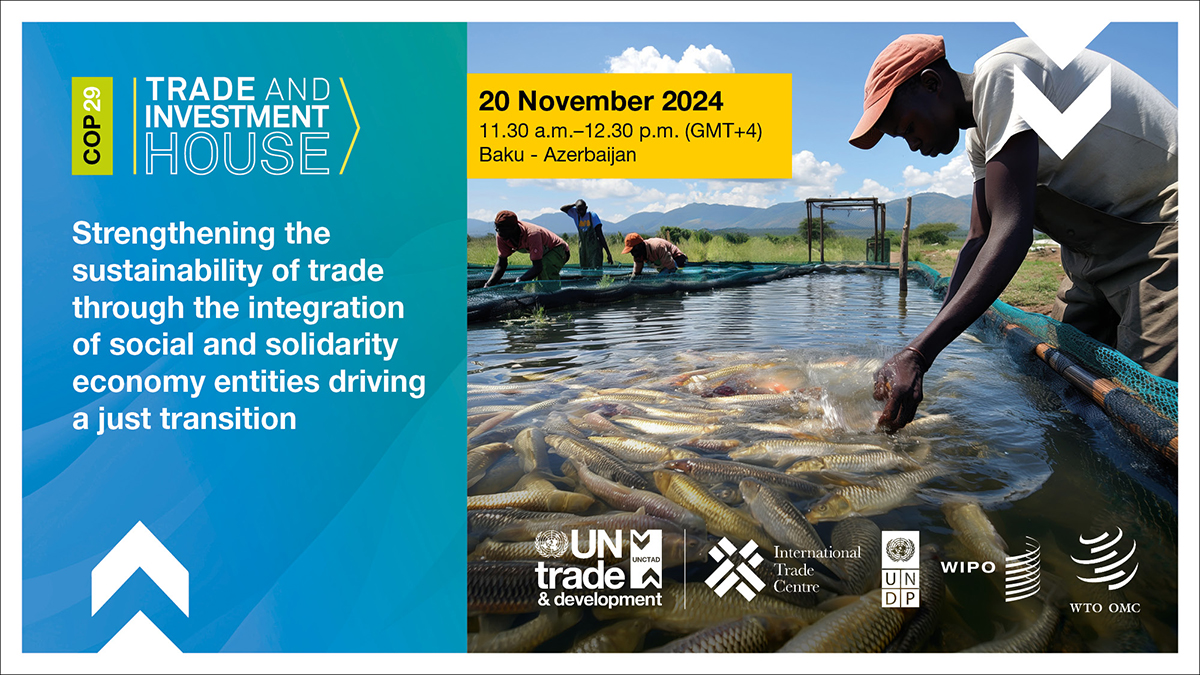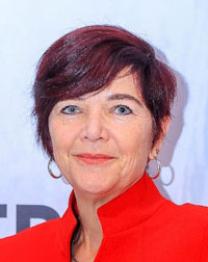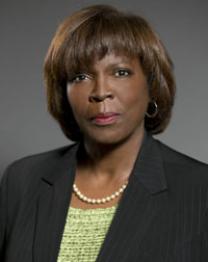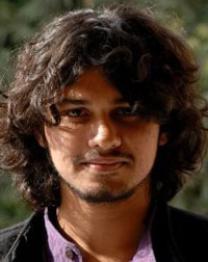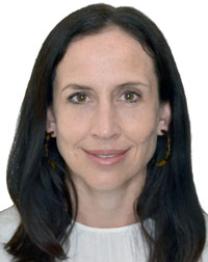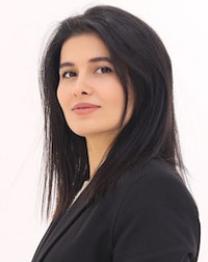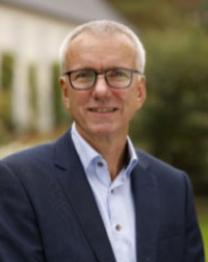On April 18, 2023, the United Nations General Assembly adopted the resolution “Promoting the Social and Solidarity Economy for Sustainable Development” (A/RES/77/281). It provides an official definition for the Social and Solidarity Economy and acknowledges that the Social and Solidarity Economy (SSE) can contribute to the achievement of Sustainable Development Goals (SDGs) by supporting a green and just transition and integrating environmental considerations into their core operations.
SSE entities help mitigate the impacts of climate change, preserve natural ecosystems, promote reuse and recycling, mobilise citizens to produce renewable energy through renewable energy communities, foster sustainable agri-food production, also by uniting smaller producers and boosting fair trade, and ensure the long-term health and sustainability of the planet. SSE plays a critical role in addressing environmental challenges globally, actively supporting SDG 12 (Responsible Consumption and Production), SDG 13 (Climate Action), SDG 14 (Life Below Water), SDG 15 (Life on Land), SDG 6 (Clean Water and Sanitation), and SDG 7 (Affordable and Clean Energy).
SSE entities often engage in practices that promote sustainable resource management, reduce and reuse of waste, and lower carbon footprints. They are involved in renewable energy projects, sustainable agriculture, conservation efforts and sustainable use of enhancing biodiversity with BioTrade initiatives programs. Following the UN resolution on SSE, all Member states were called upon to participate in the drafting of an implementation report and a United Nations Secretary General report on advancing SSE has just been released to follow up on the resolution. Azerbaijan contributed to this mobilisation effort and in this sense supported the implementation of the resolution on SSE.
UN Trade & Development is organising a conference to coincide with COP29 in Baku. This event will bring together researchers, SSE organisations, United Nations entities and local political leaders to exchange on how to scale up SSE projects boosting a just transition in local communities, and how these entities could further participate in international trade.
Chantal Line Carpentier joined UN Trade and Development (UNCTAD)'s Division on International Trade and Commodities (DITC) in 2014, after serving as Chief, UNCTAD New York Office of the Secretary-General. She brings to the Branch over 25 years of work experience in international trade, and environmental and agro-economics.
Prior to working with UNCTAD, she supported the Commission on Sustainable Development and served as Major Groups (of non-State actors) coordinator for the UN Rio+20 Conference and the SDGs negotiations at the United Nations Department of Economic and Social Affairs (UNDESA). She also supported the sustainable consumption and production and sustainable agriculture negotiations.
As Head of the North American Free Trade Agreement Commission for Environmental Cooperations, she lead work on the nexus of environment, economy, and trade. She also served as Agro-environmental Policy Analyst for Winrock International, and post-Doctoral fellow/Brazil office manager for the International Food Policy Research Institute.
She has an extensive list of publications on sustainable agriculture, trade and environment, sustainable consumption and production, financing for sustainable development, stakeholder engagement, global value chains, micro, small and medium enterprises, and economic empowerment of women.
She obtained a PhD. in Agro-Environmental Economics from Virginia Technology and MSc. and BSc. from McGill University.
Ertharin Cousin is the Founder, President, and CEO of Food Systems for the Future. She also serves as a Distinguished Fellow at the Chicago Council on Global Affairs and a Visiting Scholar at Stanford University. As Executive Director of the UN World Food Programme (2012–2017), Cousin led operations in 80 countries, providing food assistance to over 80 million people annually and promoting sustainable solutions to global food insecurity.
Previously, Cousin served as U.S. Ambassador to the UN Agencies for Food and Agriculture and held executive roles at Feeding America and Albertsons. She currently sits on several boards, including Bayer AG, Royal DSM, and Heifer International. Ms. Cousin is a graduate of the University of Illinois at Chicago; the University of Georgia Law School and the University of Chicago Executive Management Program-Finance for Non-Financial Executives. She has been listed numerous times on the Forbes 100 Most Powerful Women List, as the Fortune Most Powerful Woman in Food and Drink, on Time’s 100 Most Influential People list, and as one of the 500 Most Powerful People on the Planet by Foreign Policy magazine.
Rishabh is a Technical Officer for Sustainable Enterprises and Just Transition at the International Labour Organization (ILO).
Rishabh completed his PhD in Development Studies from The Graduate Institute, Geneva, where his research explored the impact of conservation efforts on the Pardhi-Baheliya tribe in India. His work highlights the challenges faced by marginalized nomadic communities in balancing development and conservation. He aims to use his findings to foster better policies for tribal welfare and environmental sustainability in India.
Previously, Rishabh was awarded the Albert Gallatin Fellowship at Yale University and a Visiting Study Fellowship at Oxford’s Refugee Studies Centre, where he researched forced migration, conservation, and sustainable development.
Ms. Hughes is Senior Climate Change Specialist at ADB Climate Change and Sustainable Development Department. She focuses on climate policy and financing, supporting countries to pursue transformational change to low-carbon and resilient development pathways and promoting multilateral and regional cooperation on climate change. She is also leading the development of ADB’s Just Transition agenda with a focus on supporting countries to manage just transition across all sectors as an enabler of climate action.
She has over 18 years of experience working on climate change and sustainable development policy, financing, and technology projects across the Asia Pacific region. She is passionate about building a sustainable and inclusive global future and helping people to be educated, effective participants. Prior to ADB this, she ran a climate change consultancy in Sydney.
She holds a Bachelor of Aeronautical Engineering and a Master of Engineering majoring in Energy Policy and Planning.
Nurana Mammadova is a peacebuilder, educator, and social entrepreneur, currently serving as an Expert at Education HUB, an Azerbaijan social enterprise.
A McCain Global Leader (2024), she has been recognized by the University of Denver and the US Institute of Peace (2019) and serves on prominent advisory boards, including MitOst e.V. and the Bosch Alumni Network’s Global Steering Committee.
With a focus on education, conflict management, and youth empowerment, Nurana has educated over 12,000 people globally through non-formal training initiatives.
She holds multiple degrees, including a master’s from the European Institute of High International Studies and Diplomatic Studies from the University of Oxford. She is currently pursuing a DPhil in Global and Area Studies.
Niels Peter Nørring has worked on European and global agriculture- and climate polices since 1985 – for the past 25 years as director in the Danish Agriculture and Food Council (DAFC) that represents Danish farmers and some of Europe’s biggest farmers’ owned cooperatives in the dairy, pork, grains and seed sectors.
2024 DAFC became party to the historic ‘Tripartite Agreement’ between the Danish government, farmers, environmentalists, industry and labor union representatives that establishes the world’s first carbon tax on agriculture livestock emissions, and finances a voluntary, locally driven and inclusive process that is mandated and required to lead to the enactment of some 250.000 hectares of new forest in Denmark, completing the repurposing of some 15 percent of the country’s farm land.
The ‘Tripartite Agreement’ sprung from years of preparatory work. 2019 Nørring championed Danish agriculture’s vision to become climate neutral by 2050 – a first of its kind among farmers and cooperative organizations in the world. Subsequently, he has worked with changing Danish governments to help implement the country’s very ambitious 2030 target of 70% GHG emissions reductions compared to emissions in 1990, including a 55-65% sub-target for agriculture to reduce emissions. In this work his focus has been on increasing production of renewable energy and building solid foundations for carbon sequestration and Power to X industrial clusters, in a manner that does not threaten food production. Niels Peter Nørring has engaged in numerous dialogues and partnerships with governments and NGOs in Denmark and internationally; because high national ambitions only have real climate impact if solutions are shared globally.
Niels Peter Nørring is Climate Director at the Danish Agriculture and Food Council in Copenhagen, and a Ph.D. in Agricultural Science from the Royal Veterinary and Agricultural University, Denmark. Nørring previously served as Agriculture Attaché at the Danish EU Representation, and as Secretary to the Danish Minister of Agriculture.

